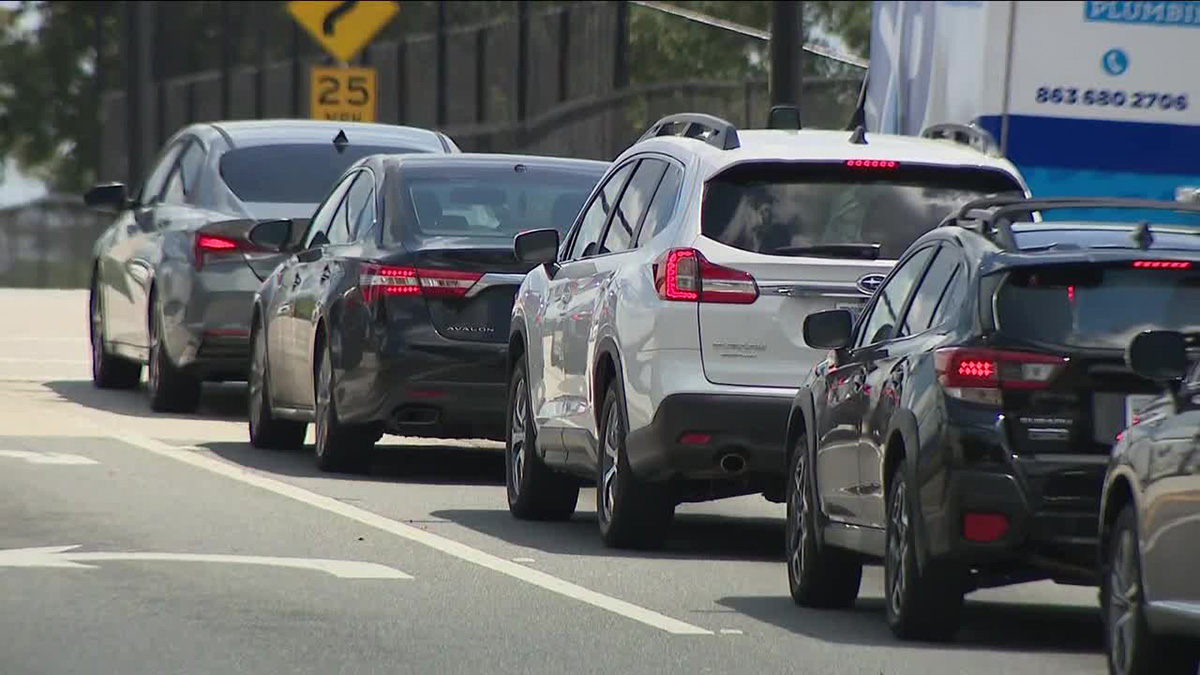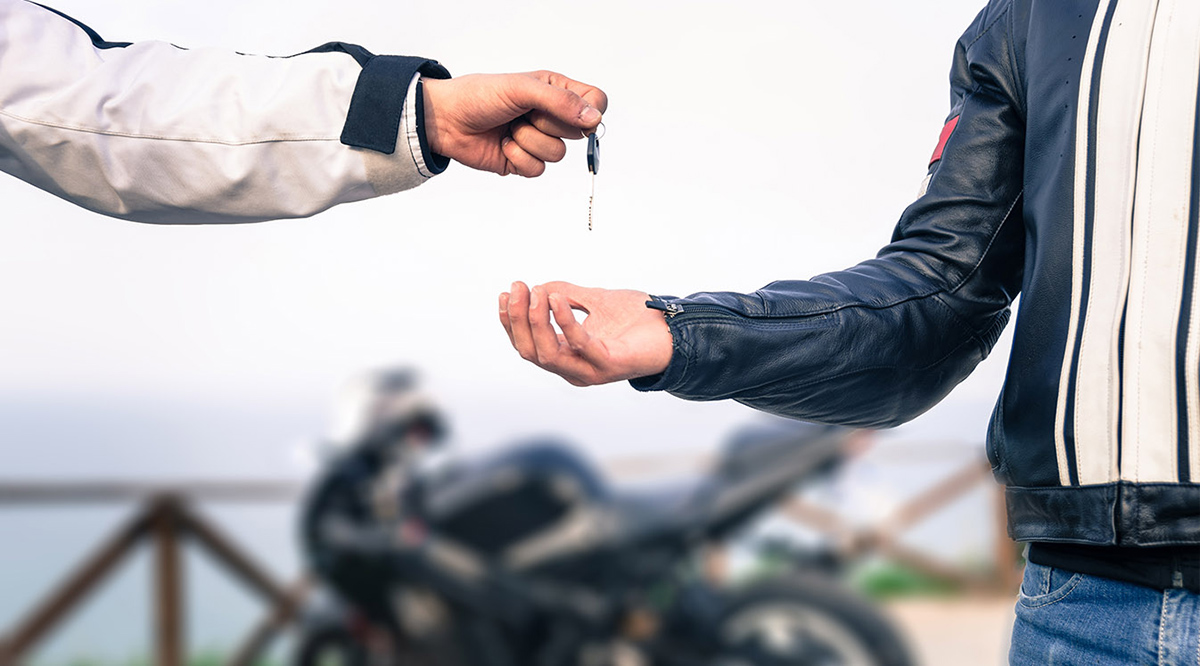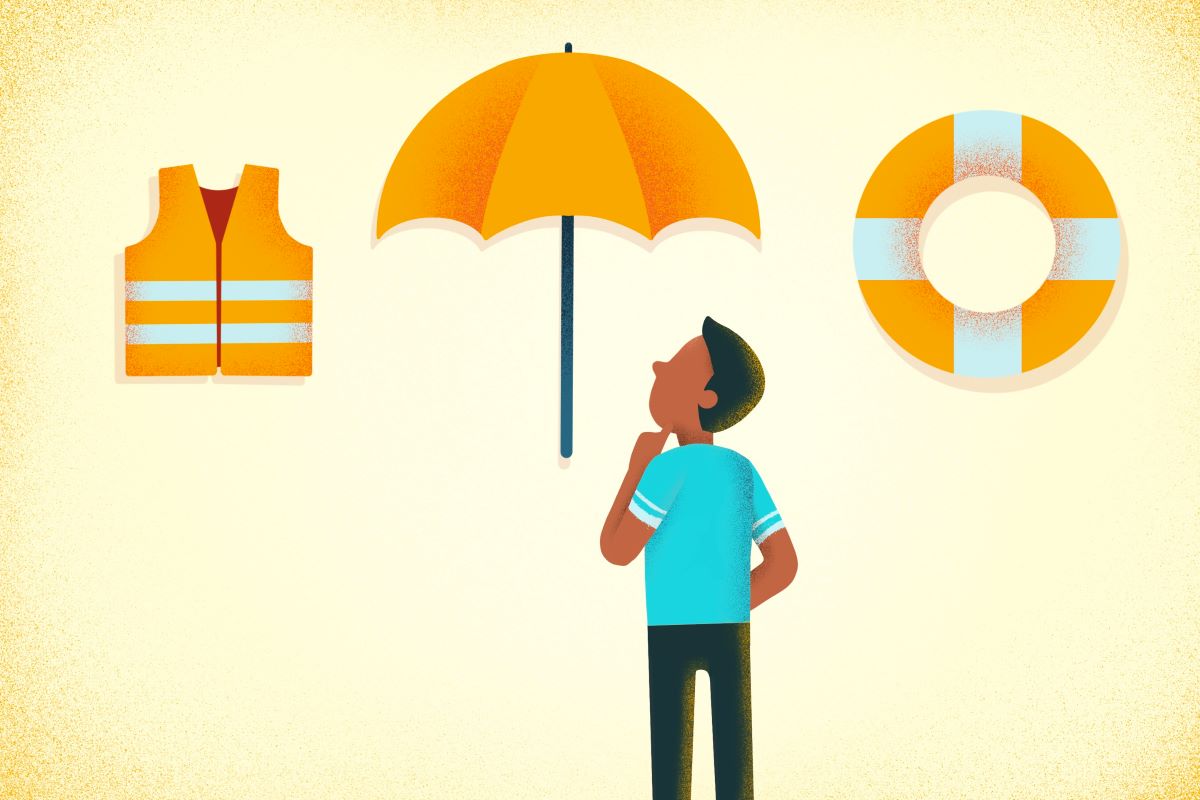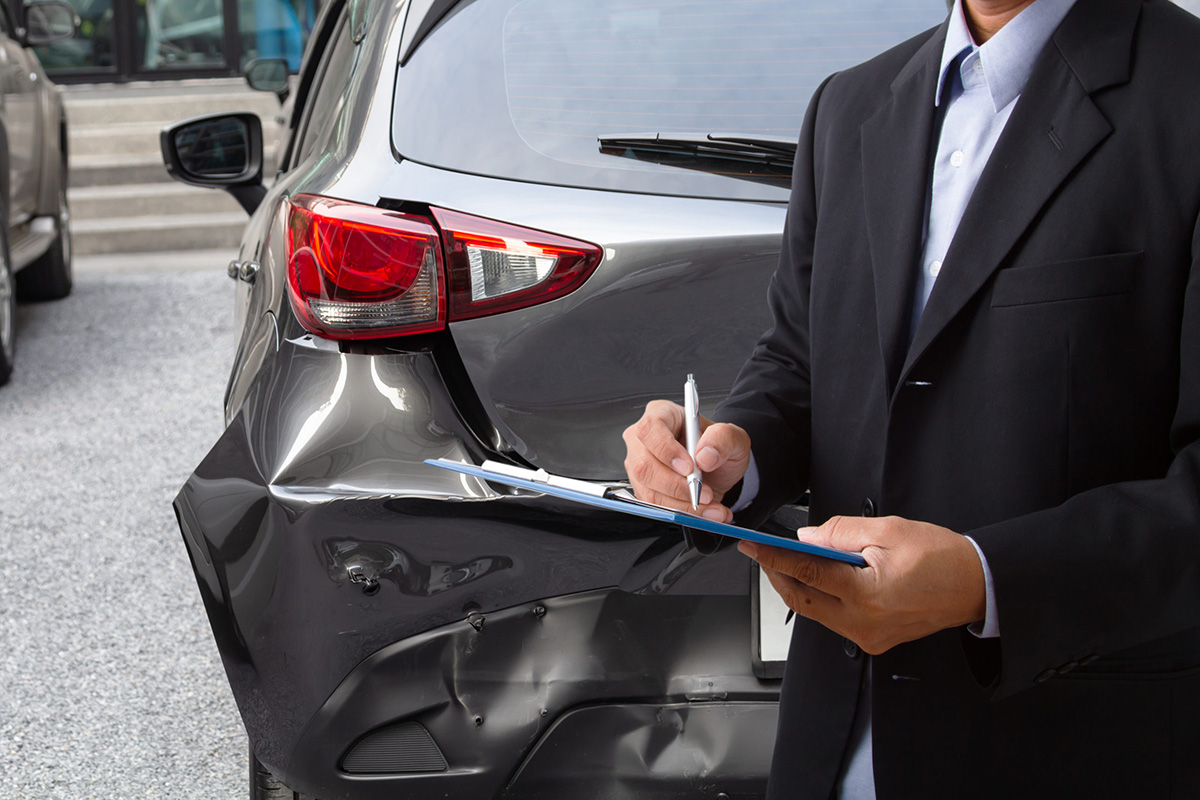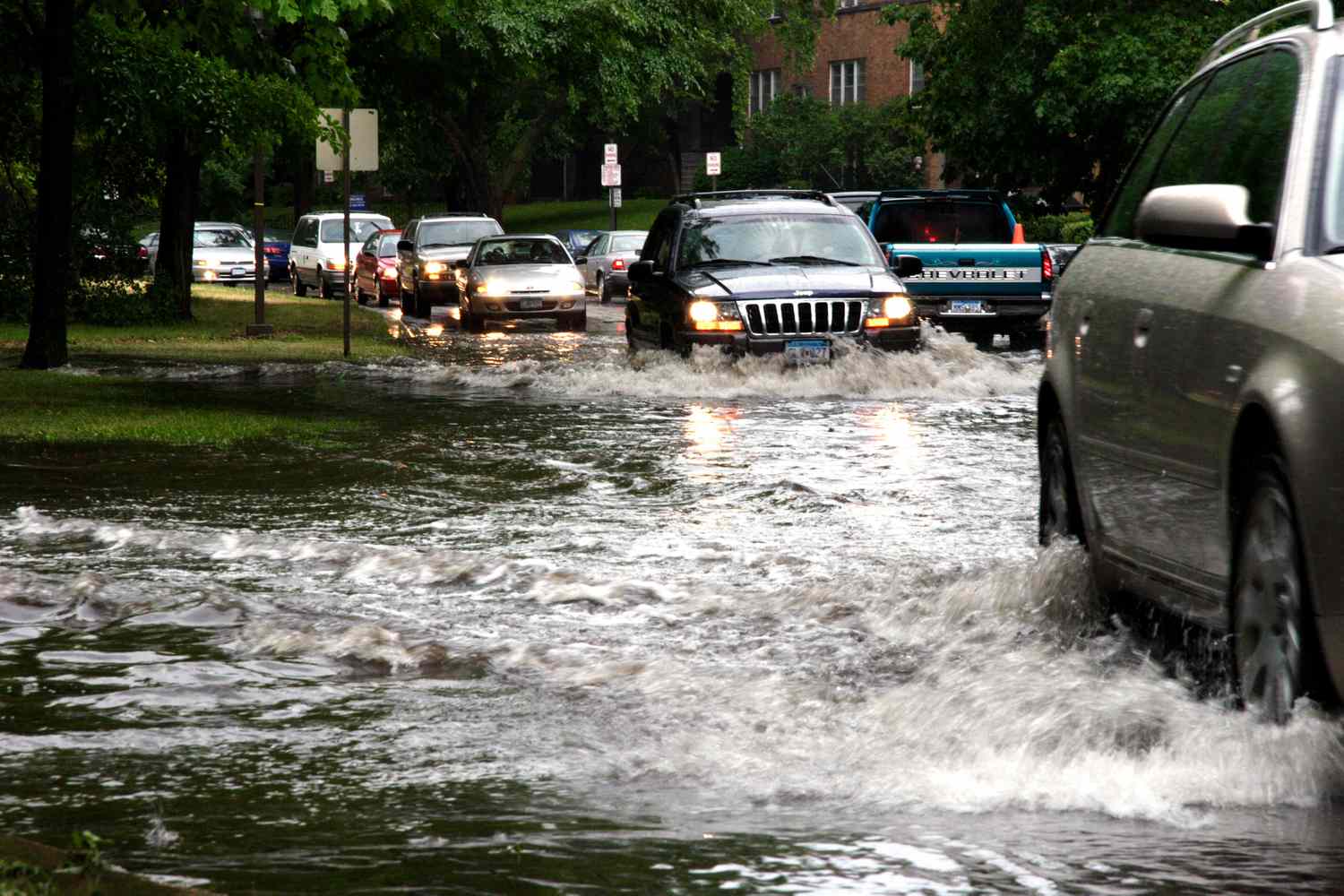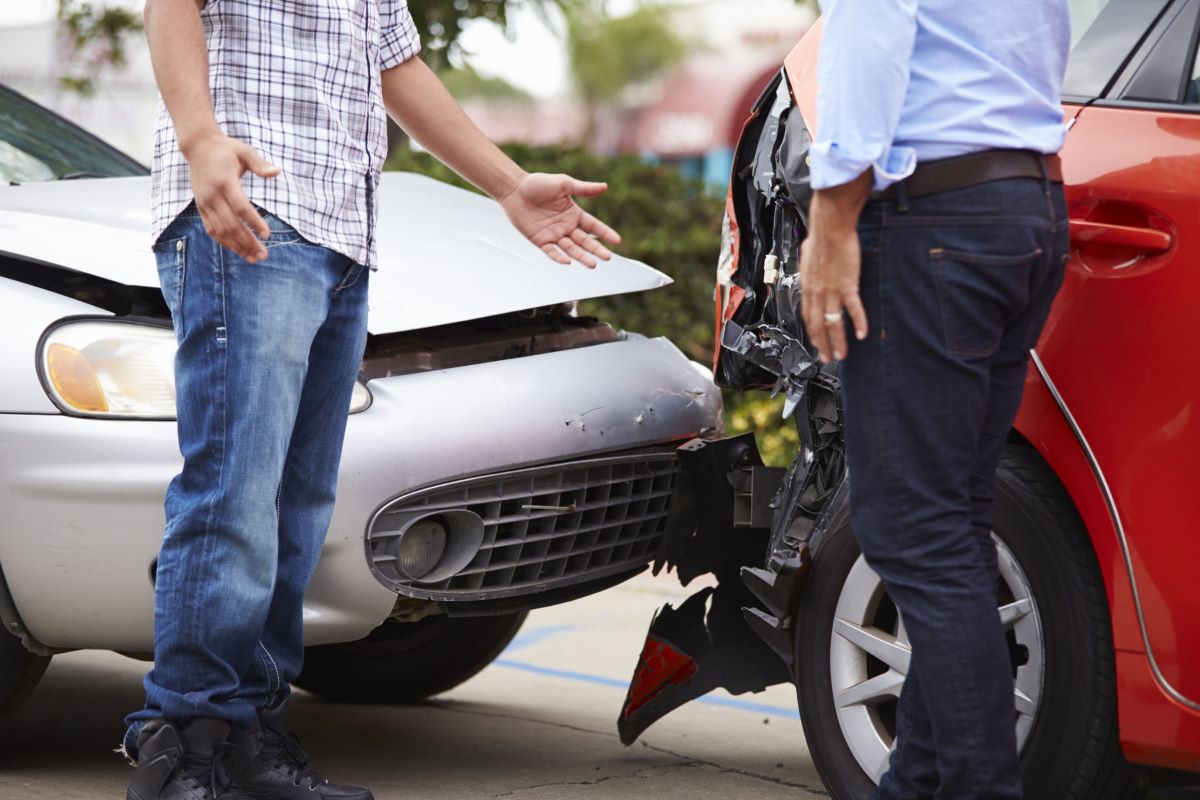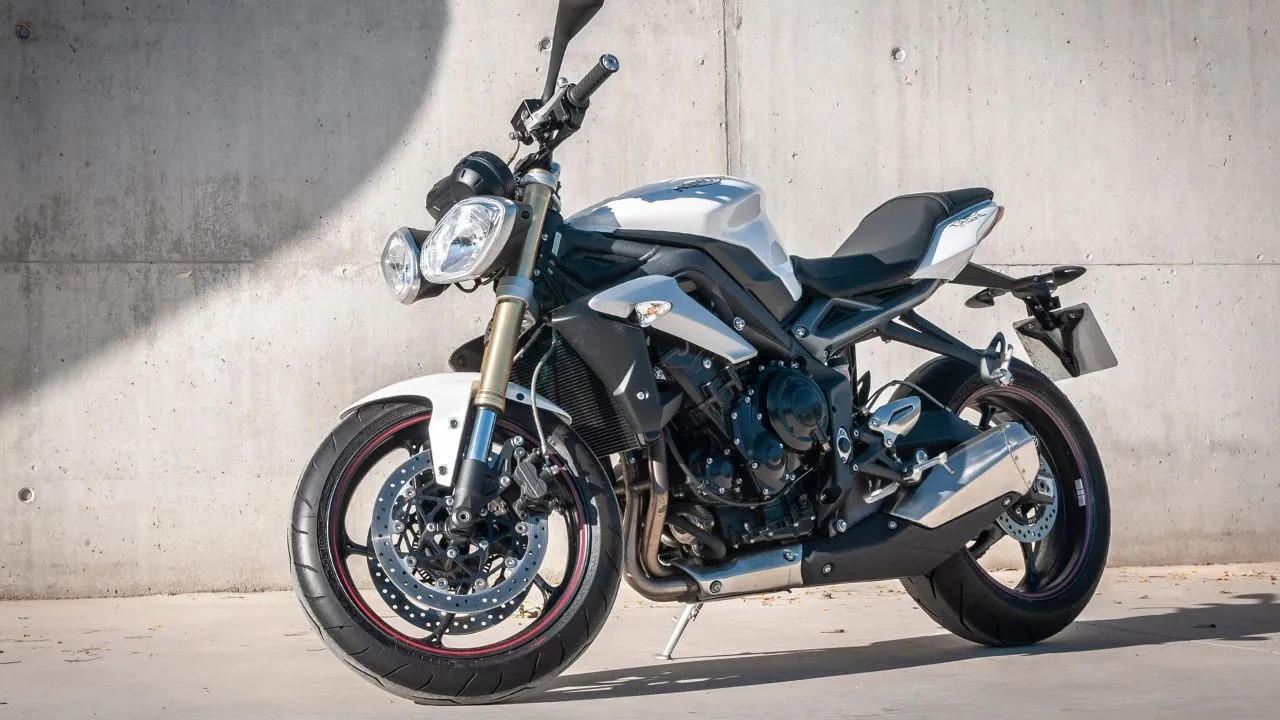Home>Finance>What Insurance Is Required For Motorcycles In Florida?
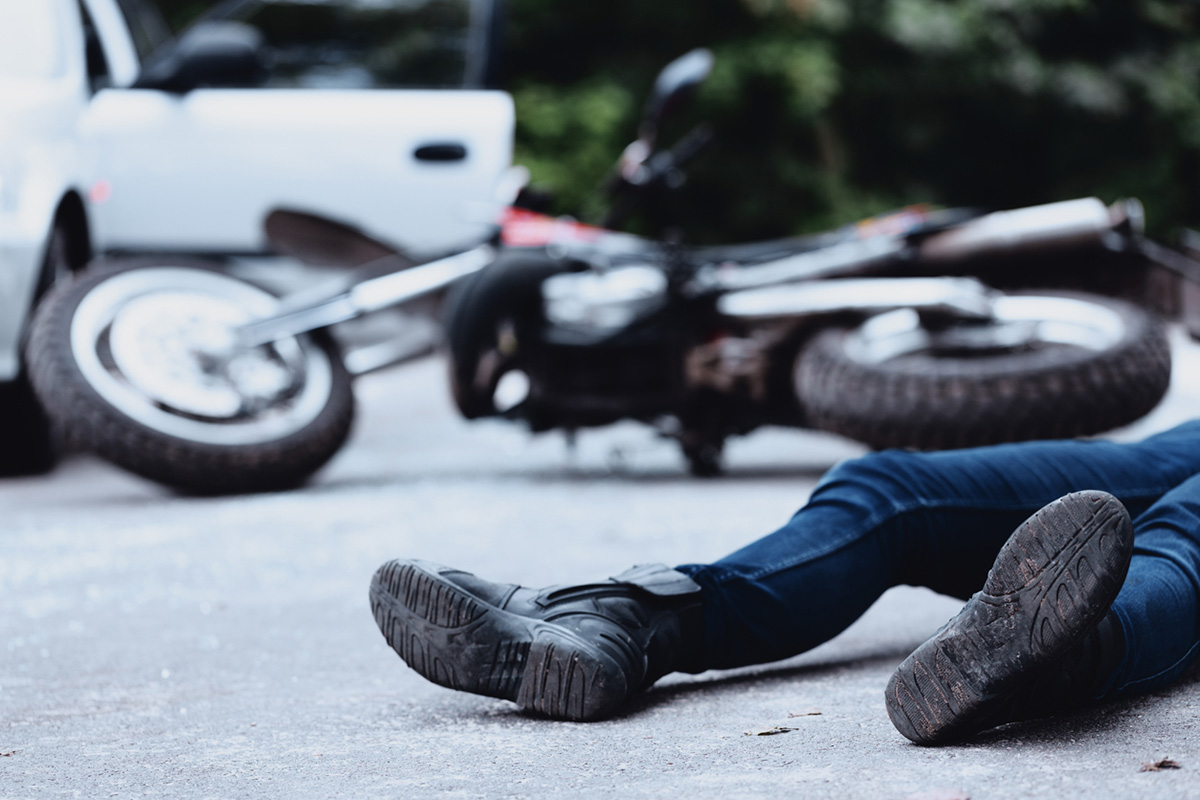

Finance
What Insurance Is Required For Motorcycles In Florida?
Published: November 21, 2023
Find out what insurance is mandatory for motorcycles in Florida and protect your finances with the right coverage. Ensure you meet the legal requirements today!
(Many of the links in this article redirect to a specific reviewed product. Your purchase of these products through affiliate links helps to generate commission for LiveWell, at no extra cost. Learn more)
Table of Contents
Introduction
When it comes to enjoying the open road on a motorcycle, safety should always be a top priority. That’s why it’s crucial to have the right insurance coverage in place. In the state of Florida, like many other states across the United States, motorcycle insurance is a requirement.
Florida has specific laws and regulations in place to ensure that motorcycle riders are adequately protected in the event of an accident or injury. Understanding the insurance requirements for motorcycles in Florida is essential for all riders, whether they are seasoned bikers or new enthusiasts.
In this article, we will discuss the motorcycle insurance requirements in Florida, including the types of coverage needed and the minimum limits mandated by the state. We will also explore the optional coverages available to further protect yourself and your motorcycle.
By familiarizing yourself with these insurance requirements, you can ensure that you are in compliance with the law and have the necessary coverage to protect yourself and your assets in case of an unexpected event.
Motorcycle Insurance Requirements in Florida
Florida law requires all motorcycle owners to carry certain minimum insurance coverages. These requirements are designed to protect both the riders and other individuals involved in an accident. Let’s explore the key insurance coverages required for motorcycles in Florida:
Bodily Injury Liability Coverage: Motorcycle owners in Florida are required to have a minimum of $10,000 in bodily injury liability coverage per person and $20,000 per accident. This coverage helps cover medical expenses, lost wages, and other damages if you are found at fault in an accident that causes injury to someone else.
Property Damage Liability Coverage: Florida law also mandates a minimum of $10,000 in property damage liability coverage. This coverage pays for damages to someone else’s property, such as another vehicle, if you are deemed responsible for the accident.
Personal Injury Protection (PIP): While personal injury protection is commonly associated with car insurance, it is also required for motorcycle owners in Florida. Motorcyclists are required to have at least $10,000 in PIP coverage. PIP coverage helps pay for medical expenses and lost wages for the policyholder and passengers, regardless of who is at fault in an accident.
Uninsured/Underinsured Motorist Coverage: Florida does not require motorcycle owners to carry uninsured/underinsured motorist coverage (UIM), but it is highly recommended. UIM coverage protects you if you are involved in an accident with a driver who does not have insurance or whose insurance is insufficient to cover your damages. It provides coverage for medical expenses, lost wages, and other damages caused by an at-fault uninsured or underinsured driver.
It’s important to note that the minimum insurance requirements in Florida are just the baseline. It is always advisable to consider higher coverage limits to ensure you have adequate protection in case of a serious accident that results in extensive damages or injuries.
Now that we have covered the mandatory insurance requirements, let’s explore some optional coverages available to motorcycle owners in Florida to enhance their coverage and protect their investment.
Bodily Injury Liability Coverage
Bodily injury liability coverage is a crucial component of motorcycle insurance in Florida. This coverage provides financial protection in the event that you are responsible for an accident that causes injury or death to another person. It helps cover their medical expenses, lost wages, and other damages resulting from the accident.
In Florida, the minimum requirement for bodily injury liability coverage is $10,000 per person and $20,000 per accident. However, it is highly recommended to consider higher coverage limits to adequately protect yourself in case of a severe accident that results in significant medical expenses or long-term disabilities.
Here are a few important points to understand about bodily injury liability coverage:
- Legal Protection: Having bodily injury liability coverage not only provides financial protection but also offers legal protection. It helps cover your legal defense costs if you are sued by the injured party following an accident.
- Protection for Others: This coverage is designed to protect the rights and well-being of other individuals involved in an accident. It ensures that they receive the necessary medical care and compensation for their injuries and losses.
- Varying Degrees of Injuries: Motorcycle accidents can result in a wide range of injuries, from minor cuts and bruises to severe head trauma or spinal cord damage. Adequate bodily injury liability coverage can help ensure that the injured party receives the necessary medical treatment and rehabilitation services.
- Financial Security: Without sufficient bodily injury liability coverage, you could be personally responsible for paying the medical bills and other expenses of another individual involved in an accident you caused. This can lead to significant financial strain and even lawsuits that threaten your assets.
It’s important to remember that bodily injury liability coverage only applies to injuries or damages caused to others; it does not cover your own medical expenses or property damage. To protect yourself and your motorcycle, you would need additional coverages such as personal injury protection (PIP) and property damage liability coverage, which we will discuss in subsequent sections.
By having adequate bodily injury liability coverage, you can ride with the peace of mind knowing that you are financially protected in the event of an accident that causes injury to another person. It not only fulfills the legal requirements but also demonstrates responsible and caring behavior towards others on the road.
Property Damage Liability Coverage
Property damage liability coverage is an essential component of motorcycle insurance in Florida. This coverage provides protection in the event that you are at fault in an accident that causes damage to someone else’s property, such as their vehicle or other structures. It helps cover the repair or replacement costs of the damaged property.
In Florida, the minimum requirement for property damage liability coverage is $10,000. However, it is advisable to consider higher coverage limits to ensure that you have sufficient protection in case of a significant accident that results in extensive property damage.
Here are some key points to understand about property damage liability coverage:
- Repair and Replacement Costs: If you are involved in an accident and found responsible for damaging another person’s property, property damage liability coverage will help cover the costs of repairing or replacing the damaged property. This can include other vehicles, fences, buildings, or any other structures affected by the accident.
- Legal Protection: Property damage liability coverage not only provides financial protection but also offers legal protection. If a lawsuit is filed against you by the property owner, this coverage can help cover your legal expenses and settlement costs.
- Varying Degrees of Property Damage: Motorcycle accidents can result in minor scratches or extensive damage to another person’s property. Adequate property damage liability coverage ensures that you can fulfill your responsibility to compensate the property owner for the damages caused.
- Financial Security: Without adequate property damage liability coverage, you may be personally liable for paying for the repairs or replacement of the damaged property. This can lead to significant financial strain and legal repercussions.
It’s important to note that property damage liability coverage only applies to the property of others and does not cover the damage to your own motorcycle. To protect your own bike, you would need comprehensive or collision coverage, which are optional coverages discussed later in this article.
By having proper property damage liability coverage, you can have peace of mind knowing that you are financially protected in case of an accident that results in damage to someone else’s property. It not only fulfills the legal requirements but also demonstrates responsibility towards other individuals and their property on the road.
Personal Injury Protection (PIP)
Personal injury protection (PIP) is a crucial component of motorcycle insurance in Florida. PIP coverage provides benefits regardless of who is at fault in an accident and helps cover medical expenses and lost wages for the policyholder and passengers.
In Florida, motorcycle owners are required to carry a minimum of $10,000 in PIP coverage. This coverage is designed to provide immediate financial assistance for necessary medical treatment and related expenses in the event of an accident.
Here are some key points to understand about personal injury protection (PIP) coverage:
- Immediate Medical Coverage: PIP coverage ensures that you and your passengers receive the necessary medical treatment promptly after an accident, regardless of who is at fault. It covers a wide range of medical expenses, including doctor visits, hospital stays, surgeries, medications, and rehabilitation services.
- Lost Wages: If the injuries sustained in a motorcycle accident make you unable to work, PIP coverage can reimburse a portion of your lost wages. This helps provide some financial stability and can alleviate the financial burden during your recovery period.
- Deductibles and Co-Insurance: It’s important to understand that PIP coverage may have deductibles and co-insurance requirements, which means you may need to pay a portion of your medical expenses out of pocket before the coverage kicks in. Review your policy details to understand the specific terms and conditions.
- Coordination of Benefits: If you have other health insurance coverage, PIP coordinates with your primary health insurance. It may act as the primary payer for accident-related injuries until the policy limits are exhausted, and then your health insurance may take over.
- Exceptions: PIP coverage does not typically apply to injuries sustained in motorcycle accidents if the motorcycle is not covered under the policy or if the policyholder does not meet specific requirements for PIP coverage on motorcycles. Make sure to review your insurance policy to understand any exceptions or limitations that may apply.
Personal injury protection (PIP) coverage is intended to provide immediate financial assistance for medical expenses and lost wages associated with an accident. By having sufficient PIP coverage, you can ensure that you have the necessary resources to receive prompt medical treatment and maintain financial stability during your recovery process.
Uninsured/Underinsured Motorist Coverage
Although not required by law, uninsured/underinsured motorist (UM/UIM) coverage is highly recommended for motorcycle owners in Florida. This coverage protects you in the event of an accident involving a driver who either doesn’t have insurance or doesn’t have enough insurance to cover your damages.
Uninsured/underinsured motorist coverage provides financial protection for medical expenses, lost wages, pain and suffering, and other damages that you may incur due to an accident caused by an uninsured or underinsured driver. While Florida does not mandate the coverage, it is a valuable asset to have in a state notorious for a high number of uninsured drivers.
Here are some key points to understand about uninsured/underinsured motorist coverage:
- Protection against Uninsured Drivers: Uninsured motorist coverage steps in to cover your expenses if you are involved in an accident caused by a driver who doesn’t have insurance.
- Protection against Underinsured Drivers: Underinsured motorist coverage provides coverage if you are involved in an accident caused by a driver who has liability insurance but their coverage is insufficient to fully compensate you for your damages.
- Hit-and-Run Accidents: UM/UIM coverage also protects you in hit-and-run accidents, where the at-fault driver cannot be identified or located.
- Coverage Limits: The coverage limits for uninsured/underinsured motorist coverage are typically set at the same limits as your bodily injury liability coverage. It is advisable to consider higher coverage limits to ensure you have adequate protection in case of a severe accident.
- Stacked vs. Non-stacked Coverage: In Florida, you have the option to choose stacked or non-stacked uninsured/underinsured motorist coverage. Stacked coverage allows you to combine the coverage limits of multiple vehicles on your policy, providing increased protection. Non-stacked coverage applies the coverage limit of the vehicle involved in the accident.
Investing in uninsured/underinsured motorist coverage can provide you with much-needed peace of mind on the road. It ensures that you are financially protected even if you are involved in an accident caused by an uninsured or underinsured driver. Consider discussing UM/UIM coverage options with your insurance provider to determine the best coverage for your needs.
Additional Optional Coverages
In addition to the mandatory coverages required by law in Florida, motorcycle owners have the option to enhance their insurance protection with additional optional coverages. While not required, these coverages can provide added peace of mind and ensure that you are adequately protected in various situations. Let’s explore some of the additional optional coverages available:
- Collision Coverage: Collision coverage helps cover the repair or replacement costs of your motorcycle if it is damaged in a collision, regardless of who is at fault. This coverage is especially valuable if you have a valuable or expensive bike that would be costly to repair or replace.
- Comprehensive Coverage: Comprehensive coverage protects your motorcycle against damages caused by incidents other than collisions. This can include theft, vandalism, fire, natural disasters, and more. Like collision coverage, comprehensive coverage is particularly valuable for expensive or prized motorcycles.
- Accessory Coverage: If you have added custom parts, accessories, or enhancements to your motorcycle, accessory coverage can provide additional protection. It helps cover the repair or replacement costs of these custom additions if they are damaged or stolen.
- Roadside Assistance: Roadside assistance coverage provides 24/7 emergency assistance if your motorcycle breaks down on the road. It can cover services like towing, battery jump-start, fuel delivery, lockout assistance, and more, ensuring that you have support when you need it most.
- Rental Reimbursement: If your motorcycle is damaged and requires repairs, rental reimbursement coverage can help cover the cost of renting a temporary replacement vehicle. This ensures that you have transportation while your bike is being repaired.
These additional optional coverages can help tailor your motorcycle insurance policy to your specific needs, providing additional protection and peace of mind. The cost of these coverages will vary depending on factors such as your motorcycle’s value, your riding experience, and your location.
It is recommended to discuss these optional coverages with your insurance provider to assess their suitability for your situation and budget. They can provide guidance on the coverage limits, costs, and any limitations or restrictions that may apply.
By considering these additional optional coverages, you can enhance your insurance coverage and protect yourself from unexpected events and potential financial burdens.
Penalties for Non-Compliance
Non-compliance with the motorcycle insurance requirements in Florida can result in various penalties and consequences. It is important to understand these penalties to ensure that you are in compliance with the law and avoid facing unnecessary legal and financial issues. Here are the potential penalties for non-compliance:
- Fines: If you are caught riding your motorcycle without the required insurance coverage, you can be fined by law enforcement. The amount of the fine may vary depending on the circumstances and previous violations.
- License Suspension: In addition to fines, non-compliance with motorcycle insurance requirements can result in the suspension of your driver’s license. This means that you will be prohibited from legally operating any motor vehicle, including your motorcycle, for a specified period.
- Vehicle Impoundment: In some cases, law enforcement may impound your motorcycle if you are found to be riding without the required insurance coverage. This can result in additional fees and inconvenience, as you will need to retrieve your vehicle from the impound lot.
- Civil Lawsuits: If you cause an accident while riding without insurance, you may be personally responsible for the damages and injuries suffered by the other party involved. They have the right to file a civil lawsuit against you to seek compensation for their losses. This can result in significant financial implications, including paying for their medical expenses, property damage, and legal fees.
- Difficulty Obtaining Insurance: Non-compliance with motorcycle insurance requirements can make it more challenging for you to obtain insurance coverage in the future. Insurance providers may view your non-compliance as a higher risk, which can result in higher premiums or even denial of coverage.
It is essential to understand that motorcycle insurance is not only a legal requirement but also provides important financial protection. By maintaining the required insurance coverage, you can protect yourself, your assets, and others on the road in the event of an accident.
It’s highly recommended to maintain the necessary insurance coverage and keep proof of insurance readily available while riding your motorcycle. This will help you avoid potential penalties, legal troubles, and financial hardships that may arise from non-compliance with the insurance requirements in Florida.
Conclusion
Having the appropriate motorcycle insurance coverage is not only a legal requirement in Florida but also a critical aspect of responsible riding. It ensures that you and others on the road are financially protected in the event of an accident or injury.
Understanding the motorcycle insurance requirements in Florida is essential for all riders. The mandatory coverages, including bodily injury liability, property damage liability, and personal injury protection (PIP), provide the foundational protection required by law. However, it is important to consider additional optional coverages, such as uninsured/underinsured motorist coverage, collision coverage, comprehensive coverage, and more, to tailor your insurance policy to your specific needs.
Non-compliance with the insurance requirements can lead to fines, license suspension, and potentially even lawsuits. It is crucial to maintain the necessary insurance coverage to avoid these penalties and ensure financial security in the event of an accident.
By working with a reputable insurance provider and understanding your coverage options, you can find the right policy that meets your needs and budget. Regularly review your policy to ensure that it remains up to date and provides adequate protection.
Remember, motorcycle insurance not only brings peace of mind but also demonstrates responsible behavior on the road. It safeguards your financial well-being and protects your assets. So, ride safely, obey traffic laws, and always have the necessary insurance coverage to enjoy the open road with confidence.
